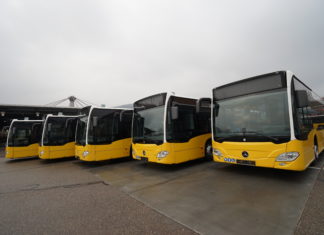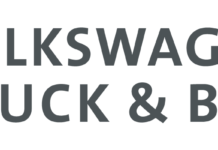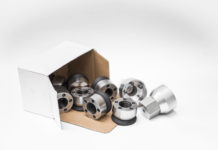An authentic and dynamic business leader in the male-dominated world of cars, planes, bikes and boats, Melicia Labuschagne launched world-renowned German lubricants brand Liqui-Moly in South Africa 12 years ago and has built it into a success story that has weathered the storm of the pandemic.
Now the Country Director for South Africa, Melicia’s unorthodox approach and true passion for changing lives shines through, whether she’s line-dancing with her team, visiting far-flung customers or reaching out with initiatives for children in need. She shares her journey so far, her philosophy on developing people, and her mission to help people thrive, not just survive, during Covid-19.
How has the pandemic had an impact on your business?
What COVID-19 is teaching us, is that nothing is certain. Everything can be uncomfortable and in flux. We’re learning that uncomfortable can be a good place to be, as then you can grow. We are constantly changing, and we’re comfortable with change and trying new things.
Our turnover has actually grown over the last year. Fortunately we have a wide product range, and we’ve been able to grab the opportunities where they arise. While some sectors have decreased, others have grown – for example DIY is booming. Where shipping issues have meant retailers have battled with importing stock, we’ve been able to supply it and we’ve used the opportunity to be able to help and assist in their stores.
How do you believe businesses can thrive during the pandemic?
Avoid the panic. While you need to evaluate your risk and put plans in place, but avoid focusing on the negative, as that will become your reality. Much like mountain-biking, if you’re looking at the big rock, that’s exactly where you’re going to end up! Rather focus on the trail ahead of you.
I believe we need to challenge our thinking habits to succeed. We need to innovate and take control where we can, looking at things in a different way. I see companies who are consumed by the negativity, including at times companies that we work with. You feel powerless, as it’s not your choice to make. In any industry, we must focus on opportunities, on solutions, on hope and how we can add value in a different way. It doesn’t matter what sector or gender – optimism is what we need. Leaders need to keep people positive, more than ever.
What has been Liqui Moly’s biggest success during the last year?
How our team has grown and continued to cope with the new challenges is our biggest success. They grow the company, they grow our partners. The choices were drown or grow – we chose grow.
We’ve been updating systems, multiskilling the team, creating capacity and broadening responsibilities.
A new reward system is in place encouraging our team to focus on health, wellness and knowledge.
We’ve seen people running 20kms, reading more books, seeing things differently and coming up with different ideas. The stronger your system, the more you can handle knocks and uncertainty. I’d like to maintain this standard of mindfulness and positive thinking beyond COVID-19. And – sanitizing has been added to the morning dance!
You launched a premium brand in the middle of the 2008 recession. Tell us about the early days?
After intensively researching the products, I launched the Liqui Moly premium engine oils and additives in South Africa in 2008, in the midst of a global recession. I was determined to build the brand based on trust with some consistent fundamentals in place – one price increase a year, superb service delivery and always adding value to the customer. We started small and I played many roles in the company – receptionist, packer, order taker, salesperson. It was tough at first as I felt so many doors slamming shut. We had to build credibility, sell our products based on the value that supports a premium price point, build relationships and just keep going back! It’s a delayed growth strategy, but it’s the strongest. The corporate customers that took the longest to buy in are now our most loyal supporters.
How have you experienced being a woman in a strongly male-dominated industry?
As a woman walking into male-dominated boardrooms and workshops of the automotive, industrial and mining industries, I have faced challenges, but I learnt to turn my difference into a real differentiator. While men can also perceive you as less knowledgeable or strong in these traditionally male-dominated industries, your gender also makes you distinctive and makes the value you can add that much more memorable. You just have to make sure you really come to the table by knowing your subject inside-out. There’s no faking it when you already have to work that much harder to be credible.
Being a female in a world where men are used to working and bonding with men is challenging, but I also find in some ways it’s easier to build a relationship, as men are more willing to share knowledge and answer your questions. There is less of a competitive edge and less ego in the interactions. I learnt from all the experts I could so I could really be top of my game.
That being said, what I’ve achieved isn’t because I’m female. It doesn’t matter who you are and where you come from, it’s possible. You need to work on yourself, and in that process, inspire people to do the same.
How are you developing women in your organisation and industry?
When we focus on only a gender, or a colour, you miss opportunities for people who want to develop their skills. Anyone has the capability to learn any skill and you need to bring people along with you on a growth path. However we do make an effort to support diversity.
In our sponsorships, we’ve included a ladies cycling team. Female teams simply don’t get the same sponsorship and investment, and we’re proud to step in.
When it comes to staff, all my staff have been learning skills and changing in all aspects. I’m very proud of the women in the team, we have women achieving in our Top 5 incentive plan and amongst our top performers. Every person in the office has been on an incredible journey developing new skills, which I have encouraged and incentivised. In South Africa – as leaders we have an obligation to show people what is possible.
What would you like to see more of in the industry when it comes to women?
I’d like to see more connection and support between female South African business leaders overall, and particularly in the automotive industry. Female directors are still thin on the ground, and it would be great to develop more synergies, sounding boards and interaction as we evolve together.
What does success look like for you personally in the next three years?
Many years ago, maybe I would have expressed success in material things. Ultimate car? Not important for me anymore. For me, success is growing as a human being. It’s also the amount of people I can help to grow, by creating a positive environment for them to thrive, create opportunities for them to succeed and become financially independent. It’s a big drive as I’ve seen what’s possible with my team.
What does success look like for Liqui Moly in the next three years?
If you’re not growing, you’re standing still. We’re building relationships where growth is flourishing on both sides. Mutual investment has created synergies that have enabled all of us to thrive. Everyone that is in partnership with us, grows with us. So many industries can be transformed if this is the principle people operate on.
What are the key principles you believe in when it comes to running a business?
- Keep improving and innovating, in good times and bad. See new ways of adding value and solving problems.
- Seek ways to stand out, rather than fit in.
- Always empower and focus strongly on skills development. You have the opportunity in a business to empower everyone you influence.
- Never assume. Always explain. Create open communications where people can ask any question and everyone can contribute.















